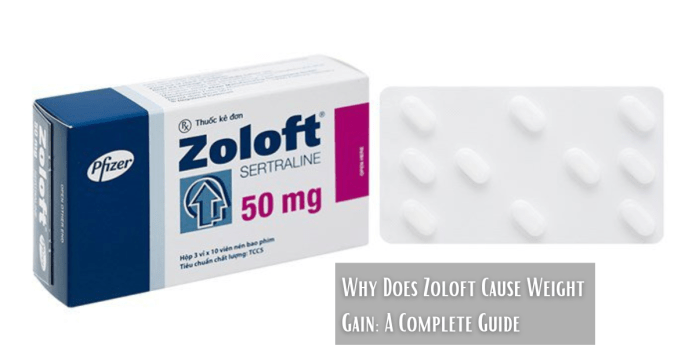Zoloft, also known as sertraline, is an antidepressant medication commonly prescribed to treat depression, anxiety disorders, and other mental health conditions. While Zoloft has been shown to be effective in treating these conditions, one of its side effects is weight gain, which can be concerning for many people. In this blog, we will explore why does Zoloft cause weight gain and provide tips on how to manage this side effect.
How Does Zoloft Work?
Before we dive into why Zoloft causes weight gain, it’s essential to understand how the medication works. Zoloft belongs to a class of antidepressants known as selective serotonin reuptake inhibitors (SSRIs). These medications work by increasing the levels of the neurotransmitter serotonin in the brain. Serotonin is involved in regulating mood, appetite, and sleep, among other functions.
Why Does Zoloft Cause Weight Gain?
While the exact mechanism by which Zoloft causes weight gain is not entirely clear, several factors may contribute to this side effect. One possible reason is that Zoloft can affect the body’s metabolism, leading to increased appetite and slower calorie burning. Additionally, some people may experience increased cravings for carbohydrate-rich foods while taking Zoloft, which can contribute to weight gain.
Another potential cause of Zoloft-induced weight gain is fluid retention. Zoloft can cause the body to retain fluids, leading to temporary weight gain. This effect is usually more pronounced in the first few weeks of treatment and may subside as the body adjusts to the medication.
Tips for Managing Zoloft-Induced Weight Gain
If you are experiencing weight gain while taking Zoloft, there are several things you can do to manage this side effect. Here are some tips:
- Talk to your doctor: If you are concerned about weight gain while taking Zoloft, talk to your doctor. They may be able to adjust your dosage or switch you to a different medication that has less of an impact on weight.
- Maintain a healthy diet: Eating a healthy, balanced diet can help prevent excess weight gain while taking Zoloft. Try to focus on whole foods, such as fruits, vegetables, lean proteins, and whole grains, and limit your intake of processed and high-calorie foods.
- Stay active: Regular exercise can help counteract the effects of Zoloft-induced weight gain by increasing your metabolism and burning calories. Aim for at least 30 minutes of moderate-intensity exercise, such as brisk walking, most days of the week.
- Keep track of your weight: Monitoring your weight regularly can help you catch any significant changes early on. If you notice a significant weight gain, talk to your doctor.
- Consider working with a dietitian: A dietitian can help you develop a healthy eating plan tailored to your needs and preferences. They can also provide tips on managing cravings and making healthy food choices.
- Be patient: Remember that weight gain while taking Zoloft is a common side effect and that it may take time to see significant changes. Be patient and stick to healthy habits, and you may be able to manage this side effect effectively.
In conclusion, weight gain is a common side effect of Zoloft, but it is possible to manage this side effect through a combination of healthy eating, regular exercise, and working with your doctor and other healthcare professionals. By taking steps to manage your weight, you can reap the benefits of this medication and improve your mental health and well-being.
